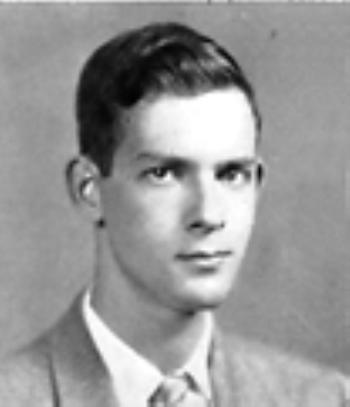On the popular Boston-based television program, “The Practice,” the actress Linda Hunt played the part of a strong-willed judge who was not afraid to reject the grand speeches of the charming, blue-eyed Bobby O’Donnell.
Many have speculated that the show’s creator David E. Kelley based this fictional Judge Zoe Hiller on the real-life former Associate Justice of the Massachusetts Superior Court, Hiller B. Zobel ’53.
And although Zobel does not recall meeting Kelley, he has heard the former-lawyer-turned-writer has said that he argued a case before the infamous judge.
But Judge Hiller’s determination not to waver in the face of public opinion and dedication to the letter of the law seem strikingly similar to the presence Zobel became famous for in the Middlesex County Courthouse.
Zobel was a household name in Boston even before “The Practice” immortalized him through Judge Hiller.
In 1997, he presided over the notorious “Nanny Case” in which the au pair Louise Woodward was accused of violently shaking a Newton family’s baby to death. The jury found Woodward guilty of second-degree murder—but Zobel overturned the verdict, finding the British au pair guilty of the lesser charge of involuntary manslaughter. Woodward went free with time served.
Zobel made national news with his shocking decision to disregard the jury’s recommendation and solidified the unique reputation he built over 22 years as a Middlesex judge.
“Judge Zobel was fiercely independent,” says Harvey Silverglate, Woodward’s defense lawyer. “He had the courage of his convictions, too. When he was convinced he was right, he stuck to his guns.”
Even as a first-year at Harvard, Zobel exhibited his independent—and sometimes in-your-face—attitude.
“It is true that he greeted me with a flaming tennis ball soaked in lighter fluid which came sailing down the stone staircase of Mower B as I arrived,” says Zobel’s first-year roommate John Cooke Dowd ’53-’90. “It did provide me with a somewhat less than usually banal introduction to life as a Harvard undergraduate.”
Despite this unorthodox meeting on the Mower Hall stairs, Dowd describes Zobel as a friendly but serious student.
Zobel initially began at Harvard as a pre-med student with a concentration in romance languages.
It was not until midway through his sophomore year that he realized the law was his calling and switched his concentration to American government.
Outside the classroom, Zobel spent most of his time at The Harvard Crimson, covering football, hockey and baseball as he worked his way up to become an associate sports editor.
Philip M. Cronin, who was president of The Crimson at the time, says Zobel was a dedicated sports writer.
Read more in News
Sikh’s Sword Seized By School













